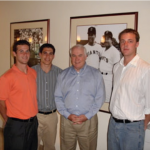In the fast-paced pursuit of progress, it’s easy to overlook the importance of reflecting on our journey. In this personal exploration, we uncover the compelling narrative of Nicole Andani, VP of Sales & Marketing and Global Brand Specialist, and her work on helping launch Tae Bo. Join us as we look at the importance of cultural adaptation, the power of localization, and the enduring impact of understanding and embracing diversity in marketing endeavors.
Embracing Cultural Sensitivity: A Journey Through Global Marketing
Written by Nicole Andani, VP Sales & Marketing, Global Brand Specialist
It’s worth it always, to be focussed on moving forward, but occasionally glance backwards in order to see the journey and how far we’ve come.
In the late 90’s when I joined Northern Response in their newly formed International Sales division, I had the pleasure of making history by working with Mark Amuso and his shining star, Billy Blanks, to launch Tae BoTM worldwide, through the use of a well-produced infomercial. It was a fitness system like no other at the time, and led by Billy himself, a fitness coach, mentor and choreographer, incorporating martial arts through punches kicks, and dance moves that were easy for many, despite varying fitness levels. The style of the infomercial was an interview format and less “yell and sell” like the other famous brands on the market.
Blanks already had some Hollywood fame by training the likes of Shaq, Wayne Gretzky, Magic Johnson, Dana White, and Paula Abdul, who helped to champion him amongst the stars, all lining up in Sherman Oaks for a class.
Our team at Northern studied the major motion picture film industry along with World Wrestling Federation (WWF) and even the PORN industry at the VSDA tradeshows, to see how they distributed their video content, on TV, LIVE, Pay Per View, retail and eventually online as the “internet platform” was emerging. We went to school on how to culturally adapt this VHS (then later DVD) program to 55 countries and 21 languages worldwide.
Back then, cultural nuance and sensitivity was a mere casual consideration through straight translation or dubbing into various languages, as a means to increase reach and ultimately sales revenue.
However, in today’s globalized economy, it has evolved to a necessary component as companies deal with a multiplicity of customer demographics, influencer groups, investors, and partners, each with its own sensitivities depending on the region—within the USA alone, let alone globally.
We travelled the across the USA, then did live workouts in the Bahamas to get our feet wet, to Germany and Japan and beyond, to launch the brand, which was met with such enthusiasm. We did our best to even incorporate local celebrities or testimonials (like Mexico and Argentina), to add the region’s flavour and in-market advertising. We were learning as we went, and embraced a global lens in our efforts over time.
Netflix, which is available in 190 countries, offers a good example of leveraging this modern day, by considering the language (native or dubbed), subtitles, and even producing original content tailored to local cultures to make products and services more appealing to international customers. This is what we were doing for Tae Bo on TV and at retail, long before we went online in the 90’s and 2000’s. Who knew we would be before our time and make an impact on the world. Gone are the days of just a straight dub.
Cultural marketing can grow business at every stage of the purchase journey. It’s about understanding the lifetime value of the customer and once you obtain them, convince them, convert them, you must retain them. Consider them. Market to them. Re-market to them. Locally, globally, or wherever they may be. For a lifetime. If that’s what your brands’ end goal is.






